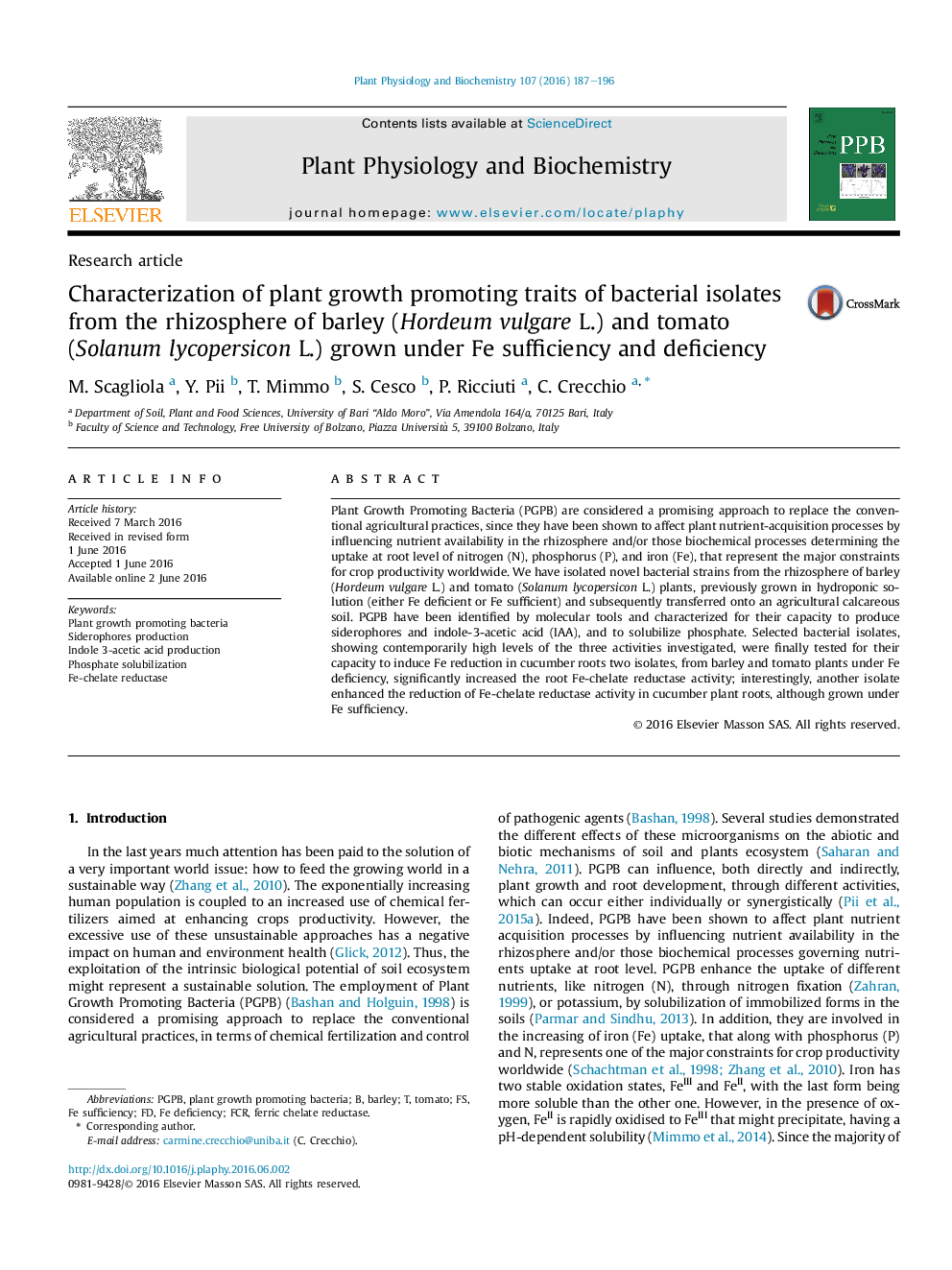| Article ID | Journal | Published Year | Pages | File Type |
|---|---|---|---|---|
| 2014663 | Plant Physiology and Biochemistry | 2016 | 10 Pages |
Abstract
Plant Growth Promoting Bacteria (PGPB) are considered a promising approach to replace the conventional agricultural practices, since they have been shown to affect plant nutrient-acquisition processes by influencing nutrient availability in the rhizosphere and/or those biochemical processes determining the uptake at root level of nitrogen (N), phosphorus (P), and iron (Fe), that represent the major constraints for crop productivity worldwide. We have isolated novel bacterial strains from the rhizosphere of barley (Hordeum vulgare L.) and tomato (Solanum lycopersicon L.) plants, previously grown in hydroponic solution (either Fe deficient or Fe sufficient) and subsequently transferred onto an agricultural calcareous soil. PGPB have been identified by molecular tools and characterized for their capacity to produce siderophores and indole-3-acetic acid (IAA), and to solubilize phosphate. Selected bacterial isolates, showing contemporarily high levels of the three activities investigated, were finally tested for their capacity to induce Fe reduction in cucumber roots two isolates, from barley and tomato plants under Fe deficiency, significantly increased the root Fe-chelate reductase activity; interestingly, another isolate enhanced the reduction of Fe-chelate reductase activity in cucumber plant roots, although grown under Fe sufficiency.
Keywords
Related Topics
Life Sciences
Agricultural and Biological Sciences
Plant Science
Authors
M. Scagliola, Y. Pii, T. Mimmo, S. Cesco, P. Ricciuti, C. Crecchio,
